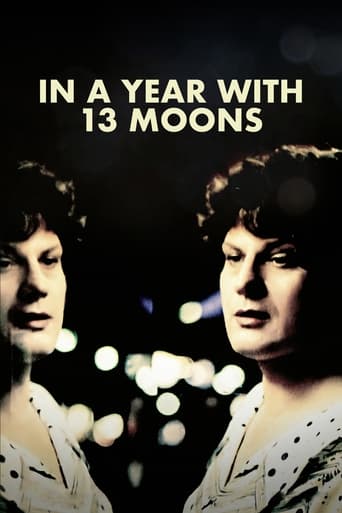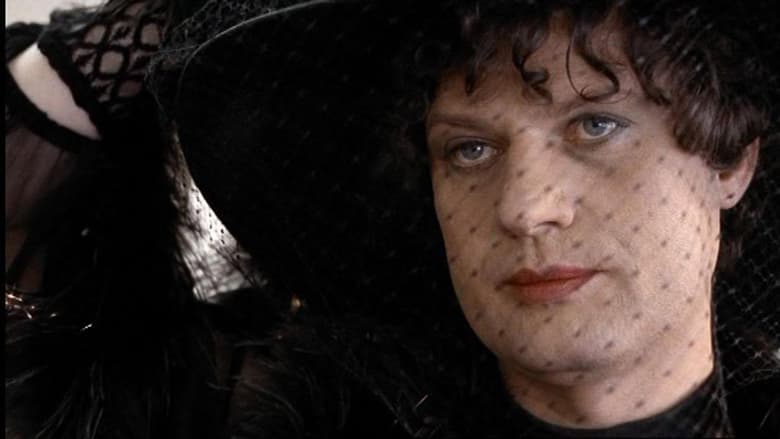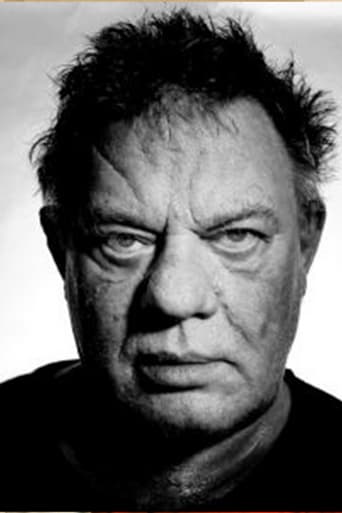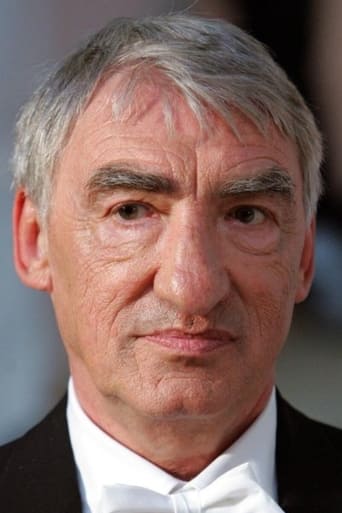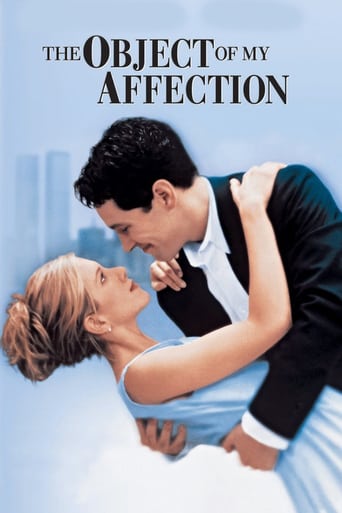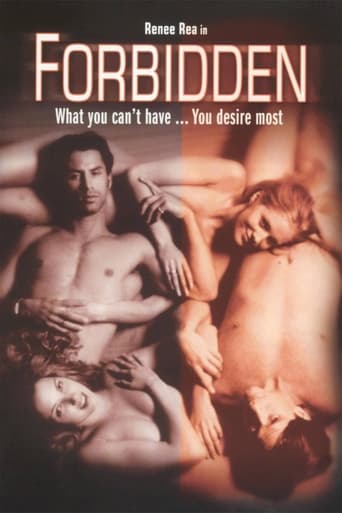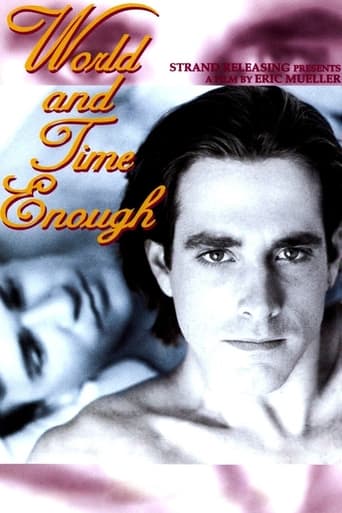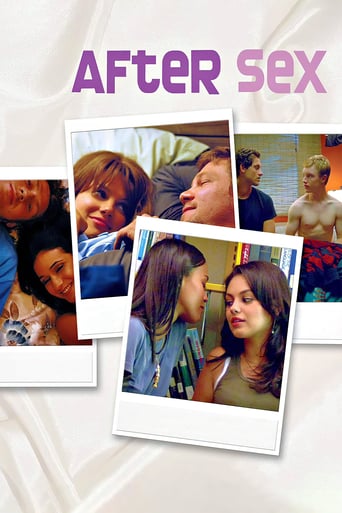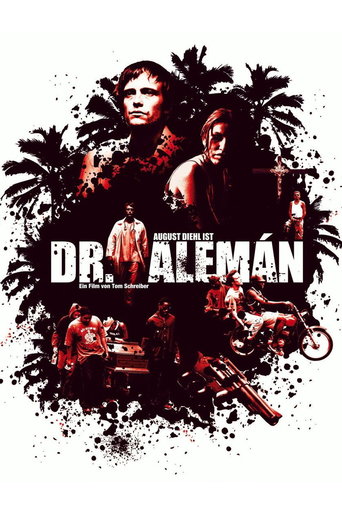In a Year with 13 Moons (1978)
Elvira Weishaupt, once a burly working-class butcher, has made an enormous sacrifice for love. She has undergone a sex change for a romantic interest who has abandoned her, and she now must struggle to reconcile her past life with her present identity.
Watch Trailer
Cast


Similar titles
Reviews
At first rather annoying in its heavy emphasis on reenactments, this movie ultimately proves fascinating, simply because the complicated, highly dramatic tale it tells still almost defies belief.
if their story seems completely bonkers, almost like a feverish work of fiction, you ain't heard nothing yet.
A terrific literary drama and character piece that shows how the process of creating art can be seen differently by those doing it and those looking at it from the outside.
This movie tries so hard to be funny, yet it falls flat every time. Just another example of recycled ideas repackaged with women in an attempt to appeal to a certain audience.
Many, if not all of Fassbinder's films focus on weighty, emotional issues and characters plunged into personal despair, but none more so than the torturous and overpowering melodrama of In a Year of 13 Moons (1978). Here, Fassbinder created a film that is completely miserable in both tone and content from the first frame until the last; with the director taking the personal loss over the suicide of his lover Armin Meier and turning it into a suffocating chamber piece of pain and humiliation. Like his earlier masterpiece, Fox and his Friends (1975), the film focuses on the personal exploitation and persecution of a sensitive character at the hands of the people that he loves, as he finds himself cast against a cruel backdrop of the grimy and oppressive homosexual sub-culture of 1970's Frankfurt. However, unlike Fox and his Friends, the spirit of Meier's death and the guilt that we assume Fassbinder was suffering from at the time of the film's conception have here removed any prevailing notion of hope or the promise of escape that hung-over the character of Franz - the lottery winning carnival worker from the aforementioned "Fox", as he sought an end to his cruel suffering - and replaced it with a continually degrading emphasis on shame and deprivation.Fassbinder establishes the pitiless tone of the film right from the start, with an opening vignette showing our central character, dowdy transsexual Elvira Weishaupt, dressed as a man and wandering through a park in the early hours of the morning looking for trade. After successfully managing to hook-up with a suitably butch male-prostitute, her secret is soon discovered and the 'john', alongside a couple of similarly macho friends, beat and mock Elvira, leaving her as a shivering, crying wreck, half-naked on an disused train-track. From here, Elvira limps home to her cramped apartment only to be plunged into a torturous, violent argument with her ex-boyfriend, which again, leaves her used and humiliated. The film continues in this episodic approach as we follow Elvira over the course of a few days and eventually find out more about her true character and personality and the events in her life that led to the eventual creation of the person that she is when we first discover her. These events are no less cruel and humiliating to the character of Elvira - who has clearly made a number of mistakes, either as a result of naiveté, arrogance or blind stupidity - as we discover the process that turned a handsome young man with a wife and infant daughter into an overweight, alcoholic wreck, abused and betrayed by the various men in her life, and the social pariahs that hang on the periphery.As ever with Fassbinder, the presentation of the film underpins the feelings of the character and the world that she inhabits perfectly; with the cramped spaces of her apartment made even more prison-like and oppressive by the director's claustrophobic use of staging, design and composition. Fassbinder undertook the role of cinematographer himself here and shot the film on grainy 16mm, which again, adds to the stark and colourless feeling that the film conveys. The ugliness of the cinematography, with its dimly lit rooms, fragment composition and awkward camera movements could be seen as either amateurish on the part of the filmmaker, or as a deliberate attempt to distance the viewer from the characters and the emotional subtext in a manner that is reminiscent of Brecht; or, more appropriately, Godard's cinematic appropriation of Brecht and his theatre of alienation. As with the subsequent political satire, The Third Generation (1979) - once again, shot by Fassbinder himself - the unconventional approach to cinematography is combined with further elements that attempt to similarly disarm us and make the process of viewing the film as difficult as possible. The opening scene itself is emblematic of this approach, with Fassbinder obscuring the frame with large titles and an opening text that scrolls slowly over the entire frame before continuing with his use of obscured images and fragmented mise-en-scene.Fassbinder also uses jarring cuts, with scenes seemingly beginning during the middle of a conversation or after the context of the scene has already been established, whilst sound and the disorientating way in which the director has characters talking over one another while music plays disconcertingly in the background all continue this idea of deconstruction and emotional distraction. The ugliness of the film fits perfectly with its tone; with the legendary scene in which Elvira and her friend wander ghost-like through an actual slaughterhouse, where cows are dispatched in graphic detail, whilst a monologue is recited to give us the entire back-story of this truly tragic figure. Whether or not Elvira is an extension of Fassbinder or the personification of Armin Meier is unknown, though there is certainly that element to the interpretation. I'd imagine that there is also some of the director in the portrayal of manipulative antagonist Anton Saitz, who recalls the depiction of Fassbinder in the director's own segment of Germany in Autumn (1978). Regardless, In a Year of 13 Moons is a fascinating if entirely difficult work from Fassbinder; one that brims with an uncomfortable feeling of personal confession and searing self examination that is grotesque, repellent and utterly draining, whilst also standing as a powerful and passionately realised piece of work that is both remarkable and affecting.
I watched this movie and after my first reaction wasn't that clear. sometimes boring perhaps? but then i was thinking about it, more and more and it touched me more and more and in a strange way i compared this one with the all time classic x-mas movie IT'S A WONDERFUL LIFE from Capra. in the mood way. Interesting to say, that also in 13 MOONS there is an angel like in the x-mas Movie. It's the character ROTE ZORA. While Capra's angel had success, it's will know, it will not happen in 13 Moons. of course while you will learn by the Frank Capra movie how important each human being is in the world we live in, Fassbinder gives you here the lesson how hopeless life can be. So while you have tears in your eyes by watching IT'S A WONDERFUL LIFE, you see all the hope in this movie and you know there will be a happy end. From the first second on in this movie you know, there will be no happy end. And you will have no tears in your eyes at the end, but perhaps you will be a little bit speechless. From Hollywood a movie like this never will come. This movie don't want to entertain you in a Hollywood way. so be prepared!This movie is the most personal Fasssbinder for sure. He lost some weeks before his boyfriend. then he wrote in three days the whole script. Unbelievable to tell that he ALSO was responsible for BOOK/EDITING/CAMERA (Michael Ballhaus was asked for, but he couldn't)/PRODUCING/IDEA/EQUIPMENT and of course DIRECTING it. The Music score is very good (classic meets suicide (the new wave band) meets sixties rock'n roll meets Connie Francis). A terrific Volker Spengler as the main character as also a stunning Ingrid Caven. Almost impossible to understand the whole plot when you have to read the English subtitles, it's absolutely recommend when you can speak German.Beginning with the written introduction about the 13 Moons, through the slaughterhouse scene (which is remarkable for the whole movie, because here he shows us the Life and the Death, the hopeless the movie is about in a short sequence), through the next scene where elvira is lying very depressed on the bed while the record player plays a x-mas song (it's a wonderful life......), but the song has a scratch (hopeless again) to the important scene where elvira tries to become erwin again (but failed), the two hours of this movie is very sensitive. It's not a movie to watch between Forrest Gump and Star Wars (...). It's a movie which brings you back to the ground of earth. So honest that you feel pain.Everyone will have a time in life in which he falls in a hole. This movie is showing that. A tragedy. OR a horror trip.
It's funny. I've seen a bunch of Fassbinder films and I have found some to be extremely creative and interesting, while others are repellent and self-indulgent messes--like this film. For me, it ranges from great to crap--without much in the middle. I know he has a lot of fans among the "sophisticated", but I can't help but think that a lot of his appeal is pure hype. From my point of view (and I know I will get a lot of negative ratings for this), he made too many movies too quickly and was too self-indulgent. His gay or gender-bending films (like this one) tend to be really bad--sloppily done, sometimes quite boring (such as QUERELLE and THE BITTER TEARS OF PETRA VON KANT) and sometimes just gross (like this film). Couldn't his message about acceptance of a person's gender-confusion be handled better than showing him get slapped around or watching cows being gruesomely slaughtered? Show some sensitivity for the subject matter and make your characters more human and sympathetic--then, maybe, I'd care about the films. I'm honestly at the point after watching this film that I might not bother with any more Fassbinder films--the bad seems to be out-weighing the good.
"...Every 7th year is a Year of the Moon. Certain people, whose existence is predominantly determined by their feelings and emotions, are afflicted by unusually severe depressions in these Moon Years, comparable with those they suffer in years with 13 new moons, albeit less intense. And if a Moon Year coincides with a year of 13 new moons, they can often suffer major personal disasters. In the 20th century, there are six years when this dangerous conjunction occurs. After 1978, the year 1992 will again jeopardise the existence of many human beings...Frankfurt is a place whose particular structure virtually provokes biographies like this one -or at least doesn't make them seem particularly unusual. Frankfurt is a town where you run into all the general contradictions of society at every street-corner, incessantly. Or at least, if you don't stumble over THEM immediately, the contradictions that are being fairly successfully ironed out everywhere else" (RWF)

